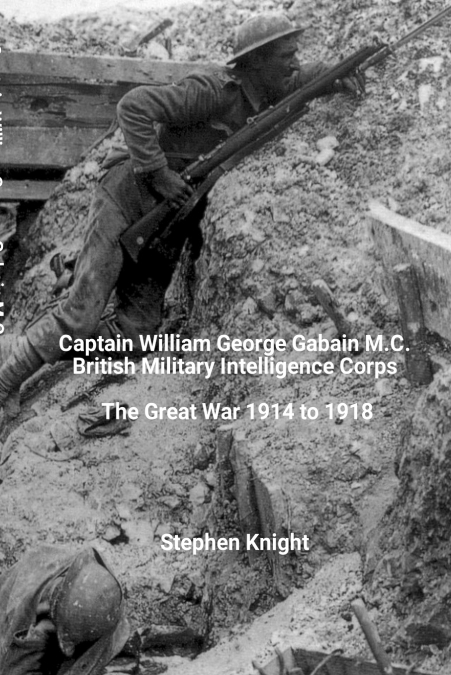
 Librería Perelló (Valencia)
Librería Perelló (Valencia)
 Librería Aciertas (Toledo)
Librería Aciertas (Toledo)
 El AlmaZen del Alquimista (Sevilla)
El AlmaZen del Alquimista (Sevilla)
 Librería Elías (Asturias)
Librería Elías (Asturias)
 Librería Kolima (Madrid)
Librería Kolima (Madrid)
 Donde los libros
Donde los libros
 Librería Proteo (Málaga)
Librería Proteo (Málaga)
The Great War broke out on August 4th, 1914, impacting the lives of millions around the world. Many people thought - or hoped - that the War would be short. One of the young men who entered the fighting that month, and who served until his death in March 1918, was twenty-five year old William George Gabain M.C.Known to family to this day, as 'Uncle Willie,' he lost his life early in Germany’s last offensive, Operation Michael, in March 1918, and is buried in the British cemetery at Pargny, France by the Somme Canal.Gabain was born in Le Havre. He traveled and studied in Germany and also read German language at Cambridge. Because of this background and fluency in French and German, he was valued as an intelligence officer. In 1915, he operated a train watching service in German occupied Belgium. In France he spent his time at GHQ, served in the 1916 Battle of the Somme and at Ypres in Belgium. He questioned prisoners, studied the terrain, flew over the trenches, translated captured documents and letters, listened to German wireless communications, and reported to GHQ and General Haig. His best friend was his Triumph motorcycle.He was educated at Sandroyd, Charterhouse and Cambridge’s Pembroke College. He loved sports, especially boxing. He was survived by his parents, Charles Edward Gabain and Elizabeth Hutton Gabain, and his sisters Marjorie, Dorothy, Ruth, Nora, and Ethel. In 1921, his grief stricken mother privately published a book with excerpts from his journals, his letters, her thoughts and feelings, and condolences the family received from people who knew and served with him.His story is one of millions of men and their families who suffered and lost so much in The Great War.